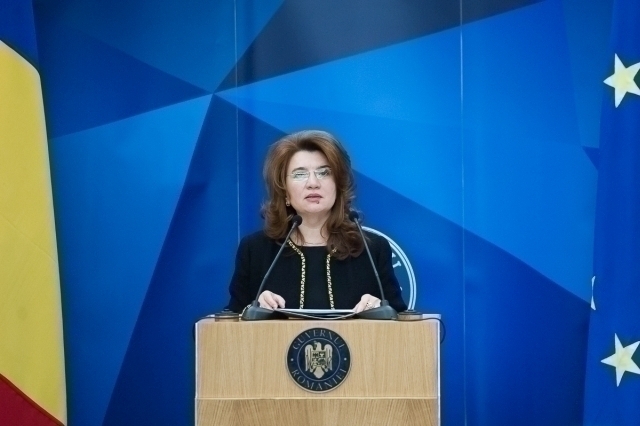Priorities for the Romanians living abroad
Since 1989 the relations with the Romanians who live outside the country have become a constant priority of Bucharest, strengthening bilateral relations with the countries hosting Romanian communities or sharing a cultural vein with Romania

Corina Cristea, 04.08.2017, 12:15
Since 1989, the relations with the Romanians who live outside the country have become a constant priority of Bucharest, both in the context of strengthening the bilateral relations with the countries that host Romanian communities or share a cultural vein with Romania, and because protecting the rights of individuals from ethnic minority groups has become one of the long-lasting priorities of both European institutions and national governments.
This is why, as Bucharest has repeatedly stated, preserving, developing and affirming the ethnic, linguistic, cultural and religious identity of the Romanians living in neighbouring countries or having emigrated elsewhere has been a strategic foreign policy objective for Romania for the past 3 decades.
As the Minister for the Romanians living abroad, Andreea Pastarnac put it early this year, upon taking office, “the new Ministry for relations with the Romanians living abroad is a very ambitious institution today, because we will try to move beyond the traditional project-based cooperation with the organisations of Romanians living in various countries, and instead we will try to find ways to transform the themes that each community focuses on.”
Each community, depending on where it lives, is absorbed in its own problems, which are extremely important, vital even, as is the case with the Romanians living along the national borders, or with the Romanians in the UK who will be affected by Brexit. But on the other hand, Andreea Pastarnac added, there are themes that connect the Romanians who live in various parts of the world. She pleaded for dialogue between these communities, so that those who have run outstanding projects may be taken as an example by others.
As a guest of Radio Romania recently, just months into her term in office, Minister Andreea Pastarnac reviewed the problems facing the Romanian diaspora: “When we talk about the Romanians living abroad, we talk about a variety of problems and themes, because nearly one-third of the active population of today’s Romania live outside the national borders. But first of all we must think about identity-related problems, about what it is that makes us all Romanian, and naturally, about the Romanian language. Apart from identity, one of our major concerns is with the rights of the Romanian citizens who live abroad, the vast majority of them employed abroad. And in this respect, the first thing we took an interest in was the large number of Romanians who live in UK and who, because of what is known as Brexit, now see their professional and social status subject to various challenges. Other groups of Romanians working abroad also find that their rights are endangered. At the same time, it is very important, and we have made this a priority for us, to carry on the campaigns run jointly with several other ministries, such as the Labour Ministry, the Interior Ministry, the Foreign Affairs Ministry, and designed to make Romanian citizens aware that they are the first guardians of their own rights. It is they who must not waive their rights, if they want these rights to be respected by others.”
The total number of Romanians living abroad is hard to measure, but the data received from the authorities of EU member states and various surveys indicate that there are several millions of such people. Most of them have chosen Italy and Spain as their host countries, with UK coming third.
Andreea Pastarnac explained that education is the main problem facing her Ministry, because a lot of Romanian children are born in other countries and they no longer learn to speak Romanian: “It is our intention to support the volunteer associations and the parish schools that are teaching the Romanian language on a voluntary basis. We must keep in mind that, particularly in the two European countries with the largest Romanian communities, a very small number of the Romanian school children manage to learn Romanian. Under a programme that we carry out jointly with the National Education Ministry, we try to bring the Romanian language textbook into those schools, both in its classical form, and in a digital format, which is very important. There are pupils who learn from pages photocopied by volunteers who do their best to help these kids. So with this programme we try to help these volunteers and schools, and also to come up with training programmes.”
These programmes should be a first step towards creating a future curriculum for the teaching of the Romanian language in the Diaspora, in Sunday schools or weekend schools organised within the Romanian communities, especially as part of Christian parishes and of representative associations of Romanians living abroad. (Translated by Ana Maria Popescu and Diana Vijeu)






























